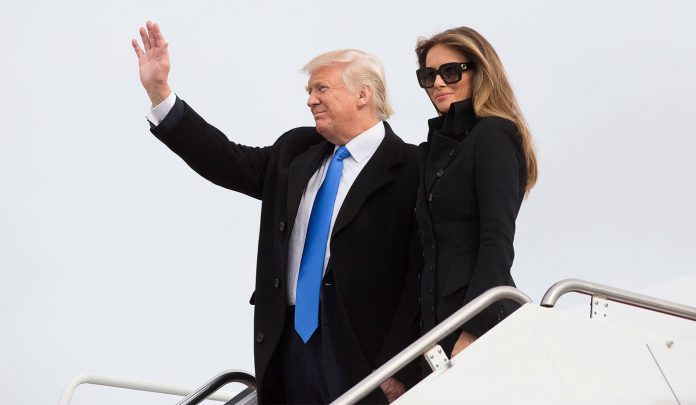President Trump has shattered Obama’s Joint Comprehensive Plan of Action (JCPOA) or nuclear deal with Iran that he criticized for many years. Now with the US dropped out itself from the accord, it has not only deteriorated the security in the Middle East but also can risk Washington’s geostrategic interest in Afghanistan. This piece talks about the possible implications of the Iran nuclear deal for Afghanistan and the U.S. interest in the country.
Geography matters. And for the United States to protect its overseas interest it matters even more. A destabilized Afghanistan is Iran’s powerful tool to pressurize the U.S. Although Iran is long accused of providing support to the Taliban yet for its survival Iran may further beef up its aid to the insurgent groups to counter the US sanctions.
What is Iran’s current Interest in Afghanistan?
Historically, both cooperation and conflict fluctuated between Iran and Afghanistan. The boundary was the major point of dispute until the 1930s. But today Iran’s interest in Afghanistan is vast.
First, Tehran needs to broaden its influence. Iran being an important player in the region, wants to expand its influence in Afghanistan. Just like Pakistan, Iran also supports groups to solidify its sphere of influence in the country. To show its mark in the post-Taliban era, Tehran frequently sent weapons and money to its long-time friend Ismail Khan. Iran’s continuing support to leaders such as Mohammad Mohaqiq, inflame ethnic tensions.
Second, Iran wants to secure its economic interest. Besides trade between the two countries, in partnership with India, Iran has invested in the reconstruction of Afghanistan. It has also benefited from the International North-South Transit Corridor and Chabahar Port. Iran uses the water flowing from Afghanistan for the cultivation of Sistan and Baluchistan. Thus Iran does not favor building hydropower projects in Afghanistan.
Exporting Afghanistan’s opium through Iran is the third area of concern. Afghanistan is the world’s largest heroin producer and exporter — producing more than 80 percent of the world’s opium, the latest SIGAR report reads. According to the UN office on drugs and crime, approximately 89 percent of Afghanistan’s opium exports cross the border into Iran— leaving a large number of drug addicts in Iran. Iran is extremely concerned about the social effects of Afghanistan’s most lucrative industry.
Fourth, Sunni extremist groups such as Al-Qaeda and Taliban are the ideological enemies of Iran. Thus, Iran would never want a return of Sunni extremists in Kabul. And now with ISIS coming into Afghanistan, Iran uses the Taliban to repel its sworn enemies. And last but not the least, most importantly, Iran is deeply concerned for the presence of the U.S. permanent military bases in Afghanistan for its own security.
How it affects Afghanistan and U.S interest in the country
Withdrawal from the Iran nuclear deal will make it more difficult for the U.S. to accomplish its mission in Afghanistan. As biggest hurdle for the U.S. in Afghanistan is certainly the Taliban, the group has escalated its fight against the US and the Afghan government. Last week the Taliban temporarily captured Farah, a province in eastern Afghanistan bordering Iran. By this, Iran wants to remind the U.S of its importance in the region. “Iran is fully funding and equipping the Taliban in Farah,” said Fazl Ahmad Shirzad, police chief of Farah. In 2009 General Stanley McChrystal wrote that he had evidence that Iran’s Quds force was “training Taliban groups and providing military equipment.”
It is a big blow for Trump’s South Asia policy, where he “unfriended” Pakistan and called on India to enhance its economic ties with Afghanistan. Bypassing Pakistan, the only seaway to reach out to Afghanistan is Chabahar which now seems at “risk”. India, one of the biggest oil and natural gas importers from Iran finds itself in a difficult dilemma whether to go with the U.S. or quench its thirst for oil. Given, it is very less likely that the U.S. will implement its new South Asia policy, successfully.
Iran was not happy with the Western-backed TAPI pipeline project that would be a lucrative venture supplying natural gas to energy-thirsty South Asian markets. The Taliban vowed to protect TAPI gas pipeline. However, soon after reimposing sanctions on Iran five TAPI project workers were killed in Kandahar. If the tension in the region continues in the same scale, the TAPI project will continue to be in limbo.
A large number of Hazara and many Tajik warlords and the Shi’a ulama in western and central Afghanistan have deep sympathy for Iran. They can also play a crucial role in influencing the mind of the public against the U.S presence in Afghanistan.
On the one hand, if the U.S. leaves Afghanistan, the Taliban may dominate and will threaten Iran’s security, on the other hand, Iran is not happy with the US military presence in Afghanistan. Supporting insurgents in Afghanistan seems to be a strategic calculation for Iran.
Also, the U.S. withdrawal from Iran nuclear deal has delivered a big blow to the liberals in Iran who maintained the views that engagement with the west will serve the best. Instead, it has strengthened Khamenei’s position who said not to trust America.
Whether intended or not Trump is axing his own foot while dealing with Iran. The U.S should neither ignore Afghanistan nor its South Asian policy. For long-term stability in Afghanistan – Pakistan, India, and Iran must be on the same table. The absence of any of these countries will result only in ineffective regional cooperation which serves nobody’s purpose.

The author is a counterterrorism and foreign affairs analyst, and currently a researcher at the Macdonald-Laurier Institute (Ottawa). He previously worked at the Observer Research Foundation and Carnegie India. His publications appear in The Diplomat, The Epoch Times, The Hill Times, Toronto Sun, Inside Policy, and elsewhere.


